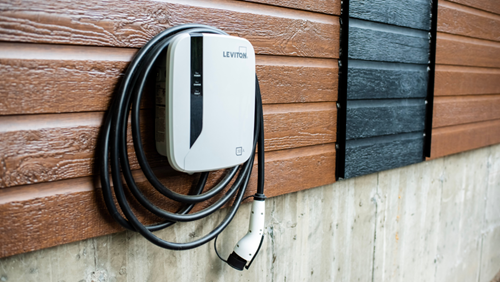5 things you need to know about EV charging
Read time: 2 minutes

Read time: 2 minutes

Transitioning your fleet and offering EV charging infrastructure can boost your business’ green credentials, decarbonise your on-road operations, and reduce the costs of fleet management.
In order to electrify, your business will need to procure EV charge point technology to be installed at your worksites, at the homes of your drivers, or both. Here are 5 things you need to know about EV charging before you make the investment.
You can use the Office for Zero Emission Vehicles (OZEV) website to check which companies are authorised to complete installations in a domestic or workplace setting. All EV installers will need OZEV authorisation regardless of the size of the project or installation.
Find local, trusted, accredited suppliers of EV technology using our online searchable marketplace.
Level 1, Level 2, and Level 3.
Level 1 charging involves plugging your EV’s cable into a standard outlet. This is the slowest means of charging, giving your EV roughly 4 - 5 miles of range over an hour of charging.
Level 2 refers to a charge point which has been installed on a wall, pole, or as a standalone charger for your EV. They are prevalent at residential and commercial sites and charge a vehicle 5 – 15 times faster than a Level 1 charger. The range Level 2 chargers can give your vehicle will depend on the wattage of the charger.
Level 3 chargers are “fast chargers.” They deliver more power at quicker speeds making them well-suited to service stations and fleet depots. However, Level 3 chargers are much larger than other types, meaning not all sites will have capacity for them.
A charge point installation must be approved by the owner of the property. If you are installing a charger at the home of one of your drivers, they will need a good, reliable Wi-Fi connection in order to manage their charge point, such as adjusting charge rates, recording energy consumption, and reporting any issues.
The cost will vary depending on the type of charger you obtain; for example, a smart charger installation could cost up to £1,200.
Fortunately, grants are available to businesses interested in procuring EV technology. The Workplace Charging Scheme (WCS) offers financial support to eligible organisations, covering up to 75 per cent of the costs of purchase and installation. This can be used in tandem with the EV Infrastructure grant which covers domestic installations.
EV tariffs are an effective means of reducing your energy bill. Energy suppliers like Octopus Energy offer cheaper electricity from 7.5p/kWh for six hours every night on an EV tariff.
For example, research from Smart Home Charge states “a Tesla Model Y Long Range Dual Motor with a 78.1kWh battery, 337 mile range and a Type 2 connector would cost just £5.86 for a single charge overnight on the 7.5p/kWh off-peak rate provided by Intelligent Octopus. This compares to £26.55 for a single charge on an average UK energy tariff, using the same electric car.”
If you’re interested in procuring EV technology or would like to learn more about the tech, you can search for local, trusted suppliers on our online marketplace, or contact us to speak with an advisor about your options.
Read our series of blogs to help you reduce energy in your business.
Share